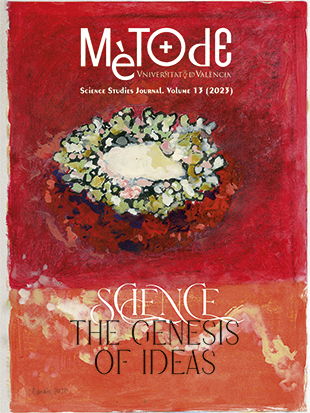Sitopia: How food shapes civilisation
DOI:
https://doi.org/10.7203/metode.13.21771Keywords:
food, cities, sitopia, society, civilisation Abstract
Abstract
The question of how to eat has always been central to human life. Our evolution has mirrored a series of technical innovations such as the control of fire, farming, and railways that have transformed, not just how we eat, but how we live. Our ancestors understood the value of food, but modern urban life has obscured the true costs of how we eat. By externalising the cost of industrial farming, we have damaged planetary ecosystems and thus threatened our future on earth. By recognising and restoring food’s true value, however, we can rebalance our lives with nature and create more resilient, equitable societies for the future.
 Downloads
Downloads
 References
References
Brunt, P. A. (1974). The Roman mob. In M. I. Finley (Ed.), Studies in ancient society (pp. 74–103). Routledge and Kegan Paul.
Darwin, C. (2004). The descent of man. Penguin. (Original work published in 1879).
George, A. (Trans.). (1999). The epic of Gilgamesh. Penguin Class.
Howard, E. (1965). Garden cities of to-morrow. MIT Press. (Original work published in 1902).
Kaplan, S. (1984). Provisioning Paris: Merchants and millers in the grain and flour trade during the 18th Century. Cornell University Press.
Morley, N. (1996). Metropolis and hinterland. Cambridge University Press.
Nestlé. (2020). Nestlé reports full-year results for 2019. https://www.nestle.com/media/pressreleases/allpressreleases/full-year-results-2019
Phillips, D. (2019, 2 August). Brazil space institute director sacked in Amazon deforestation row. The Guardian. https://www.theguardian.com/world/2019/aug/02/brazil-space-institute-director-sacked-in-amazon-deforestation-row
Downloads
Published
How to Cite
-
Abstract1476
-
PDF670
Issue
Section
License
![]()
All the documents in the OJS platform are open access and property of their respective authors.
Authors publishing in the journal agree to the following terms:
- Authors keep the rights and guarantee Metode Science Studies Journal the right to be the first publication of the document, licensed under a Creative Commons Attribution-NonCommercial-NoDerivatives 4.0 International License that allows others to share the work with an acknowledgement of authorship and publication in the journal.
- Authors are allowed and encouraged to spread their work through electronic means using personal or institutional websites (institutional open archives, personal websites or professional and academic networks profiles) once the text has been published.





